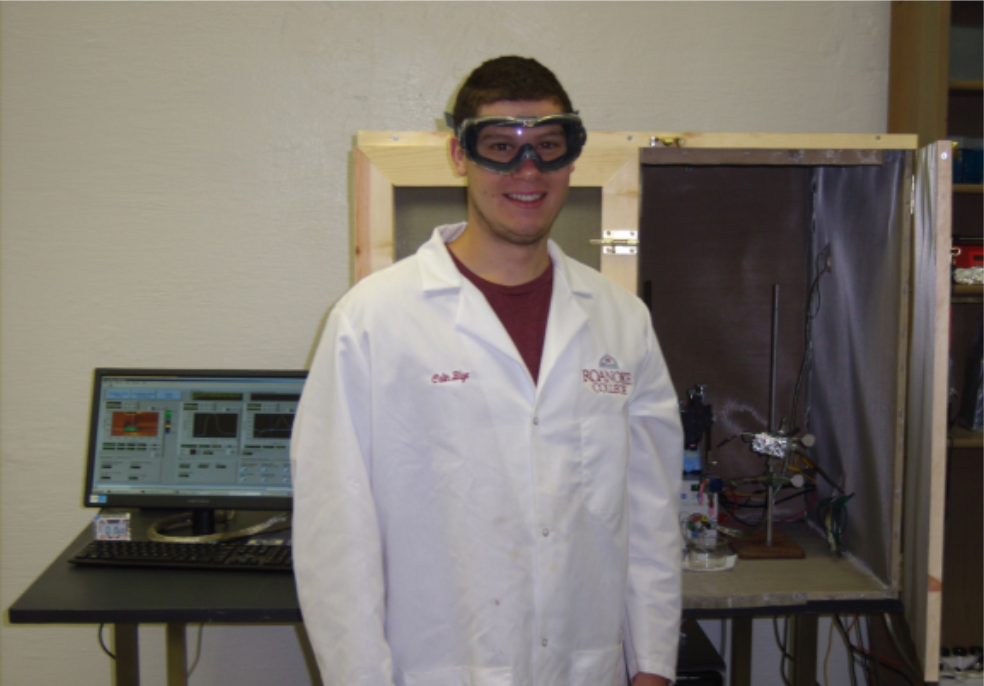Chemistry Facilities
The Roanoke College Chemistry Department has an outstanding physical facility, from newly remodeled instructional laboratories to a wide range of modern instrumentation. Equally important is the access that our students have to these facilities. Students get hands on experience with our instruments from their first course through their last course. Our students probably use more instruments in their first year of general chemistry than most undergraduate science majors get to use in four years of coursework.
-
Our 400 MHz NMR is the most powerful tool in all of chemistry. It can determine the structure of any organic compound.
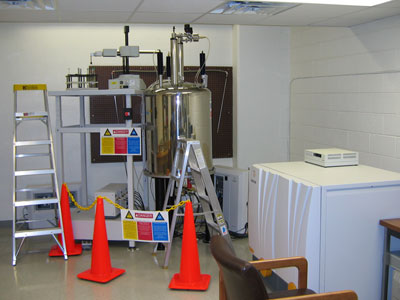
-
Our GC/MS (New in 2008) is the best tool for analyzing mixtures, the most sensitive detector for low concentrations, and the second best tool for identifying molecules. All in one instrument!
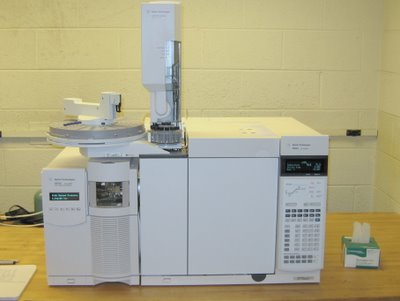
-
A thermal cycler for PCR is a common biochemical tool.
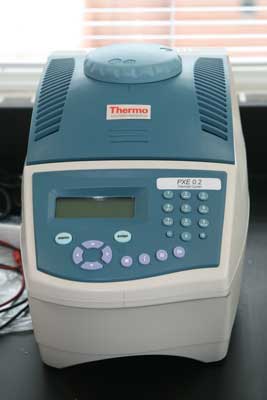
-
Our HPLC is used to separate mixtures of non-volatile compounds. It is heavily used for biochemical samples.
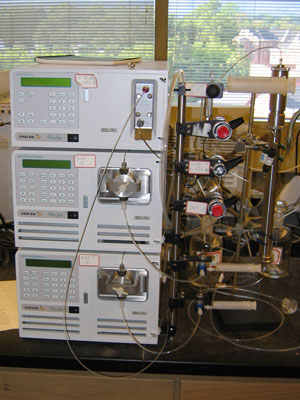
-
Our fluorescence spectrometer is used to detect trace levels of fluorescent molecules, down to 0.000000000001 moles/liter.
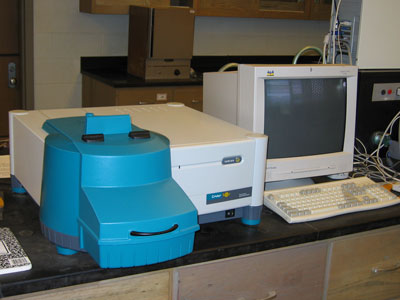
-
This carbon dioxide incubator is used to culture mammalian cells.
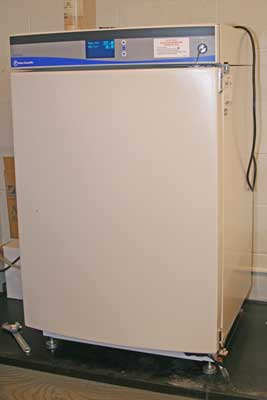
-
Atomic spectroscopy measures metals in environmental samples at the ppm and ppb levels.
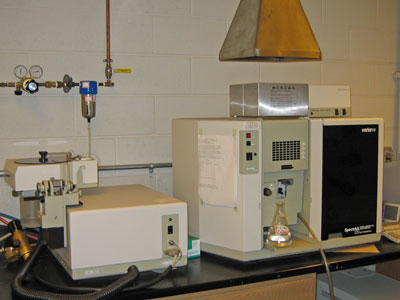
-
Our diode array UV-visible spectrometer can collect a complete spectrum in just a few seconds.
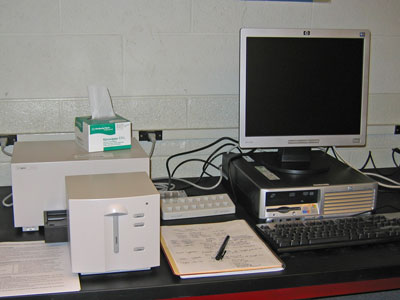
-
This plate reader obtains UV-Vis spectra from wellplates containing 96 different samples!
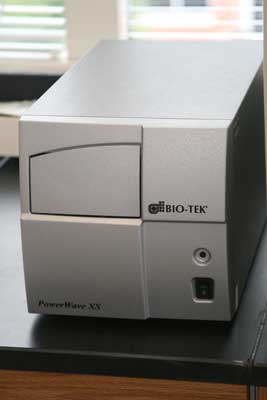
-
Gas chromatography is used to separate mixtures of volatile compounds.
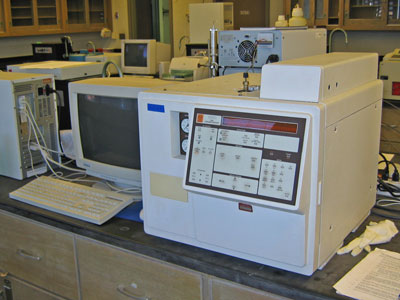
-
Our -80 degree C freezer keeps delicate biochemicals from decomposing.
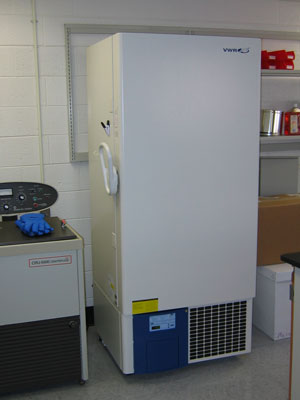
-
Adjustable micropipettes deliver tiny amounts of solutions in biochemistry experiments, as small as 0.000001 liter.
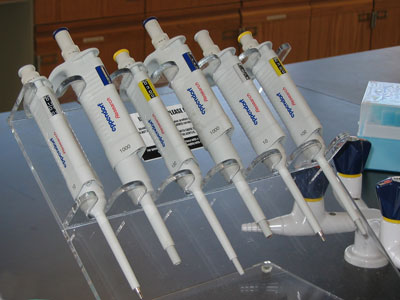
-
Our portable autoclave saves our biochemists lots of time, due to its convenient location.
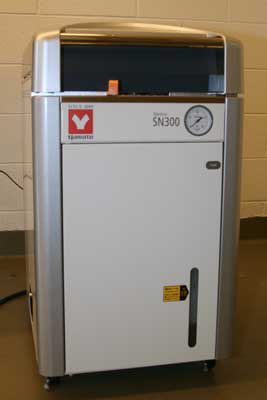
-
This refrigerated cabinet is for temperature sensitive experiments.
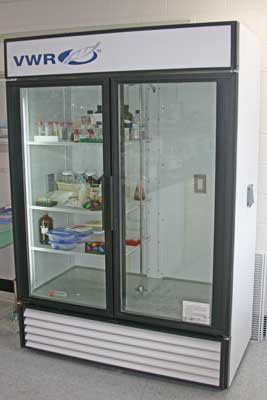
-
Biosafety hood for cell culture work.
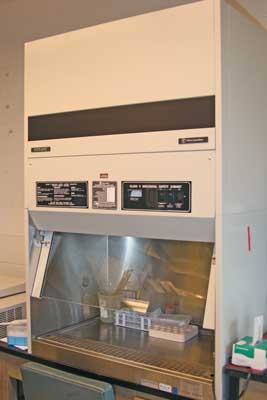
-
Dr. Sarisky and the incubator/shaker apparatus.
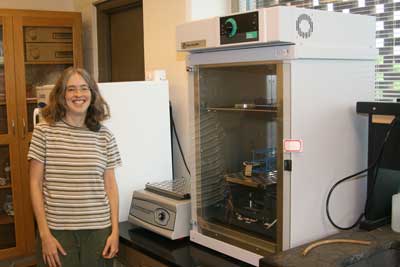
-
Our refrigerated centrifuge is mainly used in biochemistry.
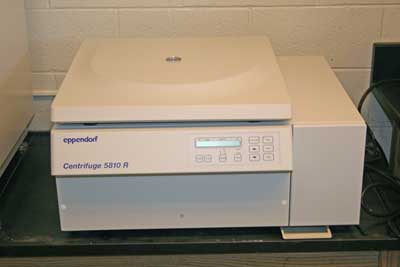
-
FSCV (Fast-Scan Voltammetry) is an electrochemical technique that allows for the nonomolar-level detection of several species including catecholamine neurotransmitters
